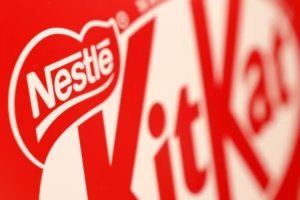Nestlé, the world’s largest packaged food company, has once again proven its resilience by surpassing sales forecasts, delivering stronger-than-expected revenue growth in 2024. However, while the Swiss multinational has managed to stay ahead in a volatile market, it now faces a pressing challenge as profit margins are expected to shrink in 2025. With new CEO Laurent Freixe at the helm, Nestlé is embarking on a strategic shift that focuses on expanding sales volume, investing in innovation, and restoring investor confidence. This move marks a significant departure from the previous years of aggressive price hikes that alienated cost-conscious consumers and took a toll on the company’s marketing budget. Investors and industry analysts are closely watching as Nestlé attempts to navigate this critical transition while ensuring long-term stability and profitability.
The announcement of Nestlé’s sales performance was met with an immediate positive reaction in the stock market, with shares rising by nearly 6% in early trading. This upward movement reflects growing optimism around Freixe’s leadership and his emphasis on execution-driven growth. However, despite the promising sales figures, the company has issued a cautious outlook, forecasting a decline in its underlying operating profit margin. Nestlé expects the profit margin to narrow to at least 16% in 2025, a dip from the 17.2% recorded last year. Freixe has acknowledged that the short-term impact on profitability is a necessary trade-off as the company seeks to invest in future growth. While cost-cutting measures are already underway, Nestlé’s ability to maintain financial health while adopting a more consumer-friendly approach to pricing remains a key focus for stakeholders.
One of the most pressing challenges facing Nestlé is the soaring cost of key commodities, particularly coffee and cocoa, which are currently at record-high prices. As a major producer of Nescafé and Kit-Kat, Nestlé has had to make a difficult decision regarding how much of these rising costs should be passed on to consumers. While some price increases are inevitable, the company has chosen a more measured approach, opting to absorb part of the costs rather than implementing aggressive hikes. This strategy is in line with broader industry trends, as competitors such as Unilever have already taken steps to slow down price increases in an attempt to win back shoppers who have shifted to more affordable alternatives. By carefully balancing pricing adjustments with cost efficiencies, Nestlé hopes to strengthen its competitive position without compromising customer loyalty.
Freixe’s leadership is already yielding results in terms of operational efficiency. The company recently announced that it has secured more than 300 million Swiss francs in cost savings for this year alone. This achievement is part of a larger goal to achieve 2.5 billion francs in savings by 2027, an ambitious target that underscores Nestlé’s commitment to driving efficiency and improving profitability. While cost-cutting measures are essential, they are being implemented alongside strategic investments in product innovation, marketing, and market expansion. By adopting a dual approach of reducing expenses while boosting sales, Nestlé aims to create a more sustainable growth model that can withstand external pressures, including inflation, fluctuating commodity prices, and shifting consumer behavior.
Financial data for the past year confirms a pattern of moderate growth, with Nestlé posting a 2.2% increase in organic sales for 2024. This figure slightly exceeded market expectations, reinforcing the company’s ability to maintain momentum despite economic headwinds. Additionally, real internal growth, a key indicator that measures sales volume excluding the impact of price changes, rose by 0.8%. While this growth rate may seem modest, it represents a step in the right direction following several quarters of weak sales volumes. Nestlé’s ability to generate organic growth without relying heavily on price increases suggests that the company’s revised strategy is beginning to gain traction.
Revenue figures, however, highlight the complex landscape Nestlé is navigating. The company reported total sales of 91.35 billion Swiss francs for the year, marking a 1.8% decline from the previous year. Net profit also fell by 2.9% to 10.88 billion francs. While these numbers may raise concerns, analysts and investors appear to be looking beyond short-term fluctuations, focusing instead on the company’s long-term prospects. Many believe that Freixe’s strategic pivot is necessary for restoring investor confidence and ensuring sustainable growth in the years ahead. The positive market reaction to the company’s latest results suggests that shareholders are willing to give the new leadership time to implement the necessary changes and drive long-term value.
Nestlé’s ability to maintain its market dominance will depend on several factors, including its ability to adapt to changing consumer preferences, manage supply chain challenges, and continue innovating. The food and beverage industry remains highly competitive, and companies must constantly evolve to stay relevant. Nestlé is betting on its vast product portfolio, strong brand recognition, and commitment to quality as key differentiators that will allow it to thrive in an increasingly dynamic market. By focusing on execution, efficiency, and strategic investments, the company is positioning itself for sustained success.
As the company embarks on this new phase of transformation, stakeholders will be watching closely to see whether Nestlé can successfully balance profitability with growth. The coming year will be critical in determining whether the company’s strategic adjustments will pay off or if further refinements will be needed. While challenges remain, Nestlé’s track record of resilience and adaptability suggests that it is well-equipped to navigate the evolving business landscape and emerge stronger.
Stay informed with the latest news from Nigeria and beyond! Join us on WhatsApp or Telegram for real-time updates. Have a report or article? Send it to report@trendingnaijanews.com. Follow us on X (Twitter), Instagram, LinkedIn, YouTube, TikTok, and Facebook for more updates.


